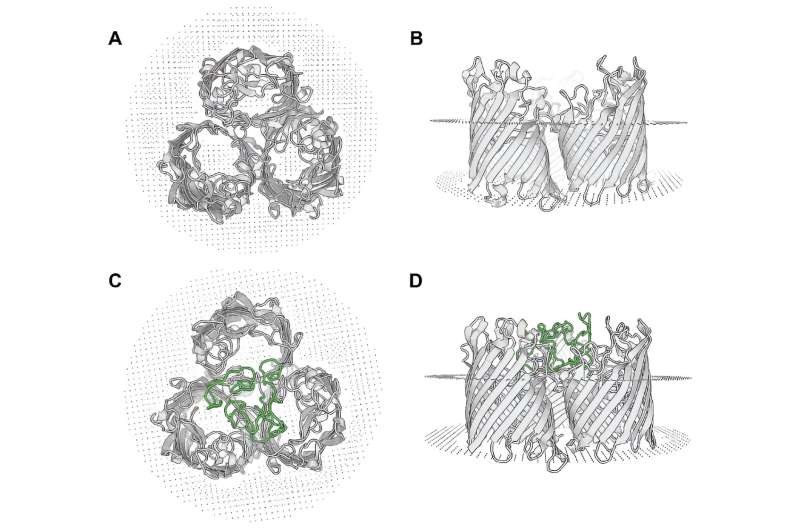This article has been reviewed according to Science X's editorial process and policies. Editors have highlighted the following attributes while ensuring the content's credibility:
fact-checked
proofread
Researchers genetically modify E. coli bacteria with part of HIV virus in bid for successful vaccine

Nikolai Scherbak, docent of biology at Örebro University, has just returned to Sweden after participating in a conference in South Africa where he presented a study that increases the chances of developing a vaccine against HIV. Together with other researchers, he has genetically modified probiotic E. coli bacteria with a part of the HIV virus.
The paper is published in the journal Microbial Cell Factories.
"Applying advanced technology, we insert DNA sequences at a specific site in the bacterium. We use a part of the HIV virus that isn't infectious but still triggers the body to produce neutralizing antibodies," says Scherbak.
E. coli bacteria live in the intestines of humans and other animals, and some variants cause several types of infections. However, there are also beneficial variants of the bacteria that can contribute to better gut flora. One of them, a probiotic E. coli bacterium of the Nissle strain, was used by the Örebro researchers in the study.
"The bacteria we used are sold as dietary supplements in Germany, but as far as I know, they aren't available in Sweden. These supplements are recommended for people having IBS or other stomach disorders."
HIV is the virus that can lead to the deadly immune deficiency disease AIDS, for which there is no cure. However, there are HIV treatment drug therapies available that allow infected persons to live without symptoms or risk of transmitting the disease.
"An HIV-infected person must take the antiretroviral medication for the remainder of their life and at a cost that not everyone can afford. Researchers have pursued vaccine development for years, but unfortunately, it's not been a priority for pharmaceutical companies," says Scherbak.
If the bacteria developed at Örebro University leads to an approved pharmaceutical product, it could be taken in pill form. Pill-form vaccines have considerable advantages over vaccines that must be injected. Pills are simpler and more practical and do not require storage at cold temperatures like some COVID vaccines.
In many previous attempts to use bacteria to produce vaccines, researchers have used antibiotic-resistant genes to maintain the genetic modifications in the bacteria. However, this method can lead to negative consequences such as antibiotic resistance, a growing global public health problem. Using CRISPR/Cas9 technology, Örebro researchers produced a stable genetic modification in the probiotic bacteria without needing antibiotic-resistant genes.
Scherbak sees no risks with the genetically modified bacteria. However, more research is required, including animal studies, before the technology is tested on humans and a vaccine can see the light of day.
"It requires at least a couple of years of preparations and ethical approvals. Otherwise, in normal cases, drug development takes around ten years to complete," says Scherbak.
Scherbak and his research colleagues are collaborating with the Public Health Agency of Sweden and Cape Town University in South Africa.
More information: Nathaniel Ninyio et al, Correction: Stable expression of HIV-1 MPER extended epitope on the surface of the recombinant probiotic bacteria Escherichia Coli Nissle 1917 using CRISPR/Cas9, Microbial Cell Factories (2024). DOI: 10.1186/s12934-024-02347-8





















